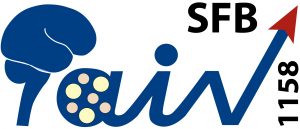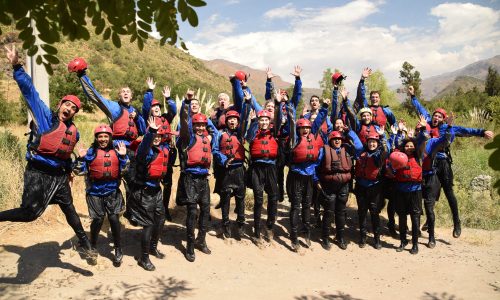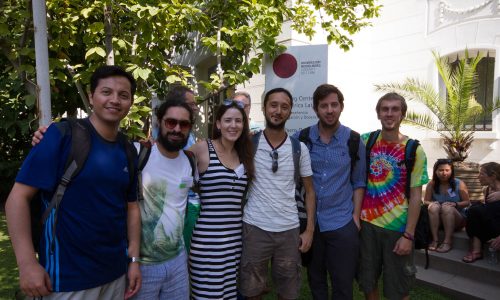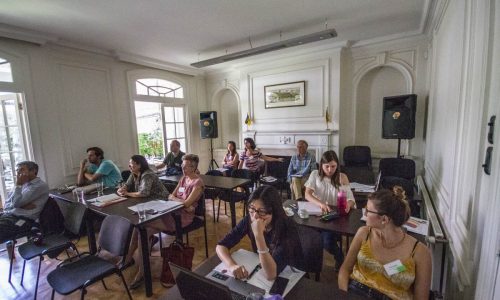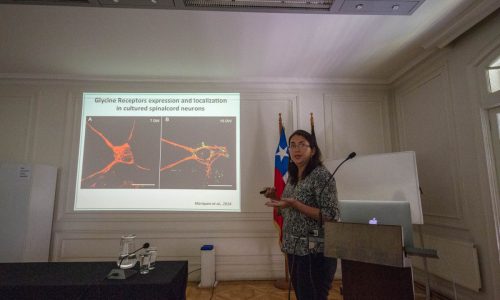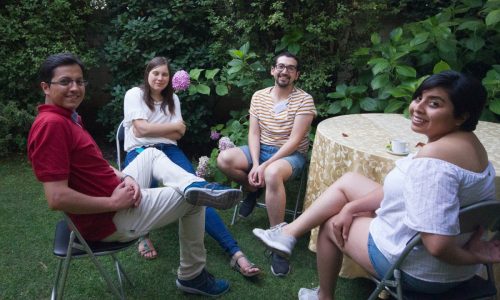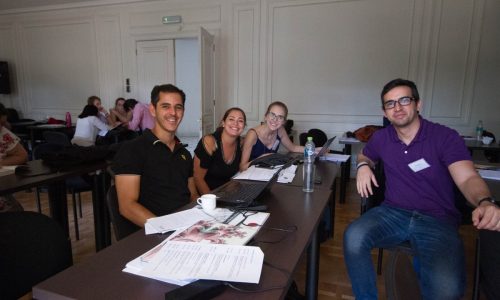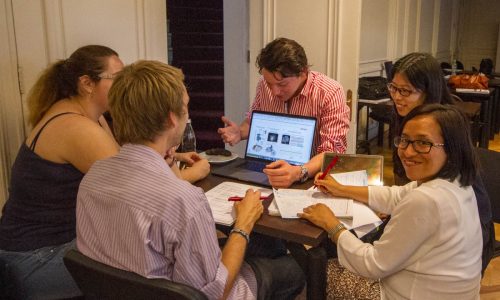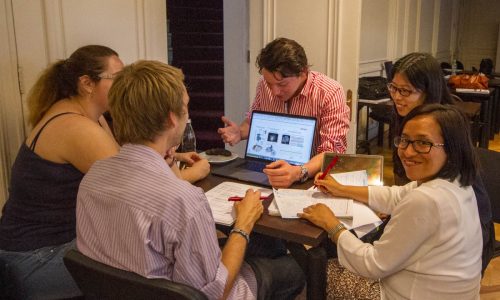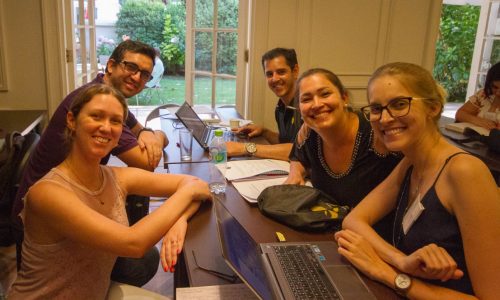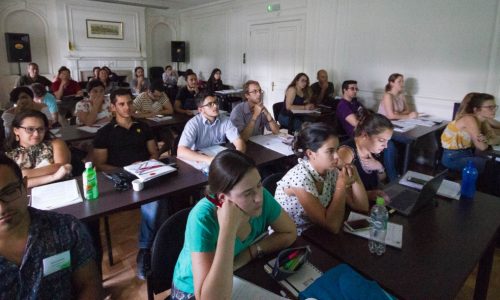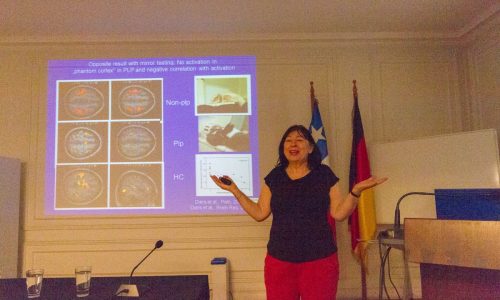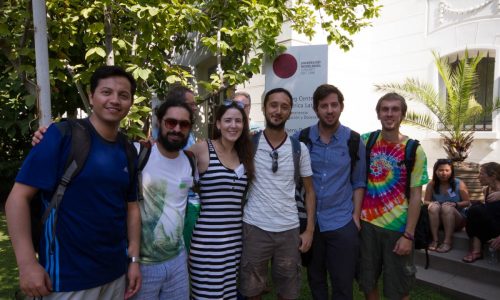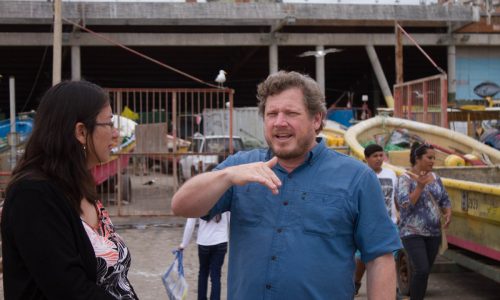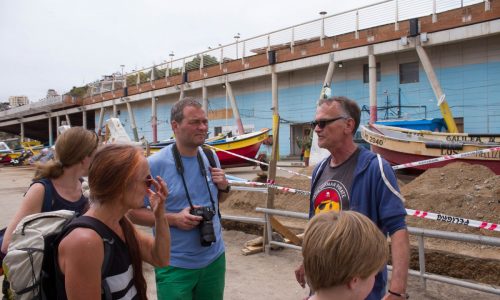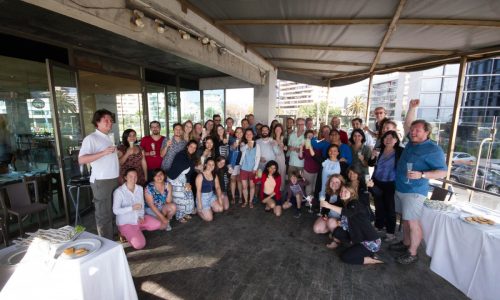Gender Equality and Family-Friendly Measures
Heidelberg University is committed towards implementing the DFG’s research-oriented standards for gender equality, e.g. by providing diverse incentives for increasing representation of female scientists in faculties and building up infrastructure for family support, amongst others, which has consistently led to an increase in the number of junior groups as well as professorships led by women at the university over the last years. The implementation of research-oriented standards on gender equality by Heidelberg University was recently evaluated as `level 4´, which is the highest achievable grade, by the review committee of the DFG.
In addition to participating in already existing programs at the University, e.g. the “Dual Career Service” or “Academia and Family” programs, SFB 1158 will implement the following measures:
Gender equality/career development coordinator:
An important approach for advancing women’s representation in higher academic roles is to ensure that young researchers receive precise information about opportunities, knowledge about sources that can be tapped into, guidance via mentors and role models who are firmly established and acquire skills towards leadership, personnel and time management, successful negotiations and work life balance. These diverse aspects will be coordinated in the context of the SFB by a designated individual, who will also stay abreast of career development programs and perspectives in the international community. Furthermore, the gender equality/career development coordinator will liaise with the central equal opportunities office and the senate committee which monitors gender equality measures at the university level to ensure successful implementation of relevant issues amongst the participants of the consortium. For example, we will work together with the equal opportunities officer of Heidelberg University to promote the recruitment of women in competitive programs for group leaders as well as in professorial recruitment committees.
Role models and mentorship program:
An effective approach for encouraging young female scientists to pursue their scientific aspirations in an academic career is to expose them on a regular basis with established scientists who share their experiences, discuss problems and help find solutions, at times all the way up to influencing and sensitising institutional committees in this regard. The proposed consortium offers role models in the form of H. Flor, H. Monyer, S. Herpertz, R. Kuner, amongst others, who are happy to take on a mentorship role. The mentorship program will involve regular one-on-one meetings between mentor and mentee and an annual workshop for all involved scientists with invited speakers as role models. In this regard, we have already established contact with the EMBL, which has set up exemplary programs, e.g. invitation of highly successful women in science, and we will participate in these programs.
Ombudsperson:
An important factor is that S. Herpertz (Chair of General Psychiatry) has agreed to take up the role of an Ombudsperson. This will be a great support to all members of the consortium, male and female, at all levels, but be particularly helpful towards the careers of young female scientists by identifying any potential problems or conflicts early on and solving them in the best possible way.
Gender-budgeting:
We are already funding student assistantships (HIWIs) exclusively reserved for part-time support of routine research activities of scientists with small children. Depending upon the need, we can also employ central funds for financing a part-time technician position to help female scientists with their projects during pregnancy and early phases of child care. For implementation of additional gender-budgeting measures, the leading scientist as well as the gender equality coordinator will work closely together with the equal opportunities office of the University and various participating institutions. One concrete measure that will be implemented will be to support costs for child-care facilities.
Mentoring workshop:
Another noteworthy feature is the organisation of a mentoring workshop entitled “Gender and Science Symposium” in Heidelberg since December 2015. The next meeting is planned for June 2024. Details will follow shortly.
Career Support at the Heidelberg Pain Consortium
In the competitive science environment entry level scientists can often find themselves lost without guidance. One of the most helpful source of insights in this situation is support from senior rolemodels.
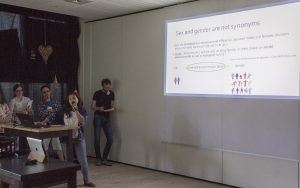
Firstly, SFB1158 aims to recruit scientists at a very early stage. Besides building on existing programs both on a national as well as local level we initiated programs like the Junior Career Fellowship program, about which details can be found below.
Contrasting the female enrolment rate into graduate programs in life sciences (51,5%), women are still underrepresented in postdoctoral (28%) and even more in faculty positions (18%). As tackling this inequality is an important cause for the consortium we are offering several levels of support tailored to the individual situation.
Early Career Support
In order to support young scientists working in the Heidelberg Pain Consortium, several measures have been created:
Junior Career Research Stipends
The Junior Career Research Stipend supports undergraduate life science students, as well as medical students, to take up a project finally leading to their thesis at one of the participating groups. SFB1158 has been funding these stipends since 2016 and the next call for applications is planned for July 2025.
Career Coaching
In cooperation with an external expert from the DFG, SFB1158 offers individual career coaching.
Young Scientists Symposium
Even the greatest scientific findings are useless if they remain in the drawer of one’s desk. As the consortium is inherently focused on cooperation and exchange, it is of utmost importance to encourage scientists to present their work early on. Besides specialized training events like the summer school (see above for link), the Young Scientists Symposium provides an excellent opportunity to present results and spark a dialogue.
Seed grants
In 2016, SFB1158 started to accept applications for small grants (max. 15.000 €) for junior scientists to pursue a promising topic of their interest. The next call is anticipated for 2025.
Mentoring for Female Scientists
SFB1158 builds upon a plethora of gender-equality and family friendly measures that are already in place at Heidelberg University, which was ranked one of the most family friendly universities by the DFG, and the respective partners.
Such resources include are for example:
- The equal opportunites office, which oversees all university-related activities and supports female scientists in difficult situations.
- Olympia Morata program supports young female researchers to work towards a Habilitation (or equivalent academic achievements) with a 50% scientist position over 2 years to particularly boost their chances for obtaining scientific independence.
- The Rahel Goitein-Strauss program of Medical Faculty Heidelberg enables young female clinicians to be freed of clinical duties to devote time to research activities by compensating the respective clinic with a rotating clinical position.
- The ‘Physician Scientist Program’ of the Medical Faculty Heidelberg provides promising young physician scientists the opportunity to take 2 years of clinical work to perform research in a faculty institution of their choice based upon stringent selection process involving evaluation of scientific project proposals.
In addition to these previously existing programs, the consortium pioneered several new initiatives to further empower women in science.
- Annual gender symposia at which female external speakers give advice about general problems faced by women in science and their solution as well as individual feedback on hurdles in young scientist’s career. Cooperating with external partners from the DFG, SFB1158 provides career counseling sessions including one-on-one meetings and tailored support in the individual career. In cooperation with external gender equality programs SFB1158 plans to further expand its activities in order to provide the best possible environment for career development.
International Pain Summer School 2016
Scientists of SFB1158 teamed up with faculty from the Canadian Pain Network as well as leading pain scientists in Germany to organize a summer school with a sharp focus on interrogating, discussing and debating on structure-function properties of neural circuits of key importance to acute and chronic pain as well as their reorganisation over pain chronicity.
Funded generously by the Volkswagen Foundation, this was a stimulating and highly rewarding experience for the SFB1158 trainees as well as international participants (USA, Canada, & Brazil amongst several European countries), who constituted about 50% each of the trainee population.
The mood of the 5 day-long summer school was vibrant, interactive and scientifically demanding while being relaxing at the personal level and marked by high quality science interspersed with highly enjoyable faculty-trainee interactions.
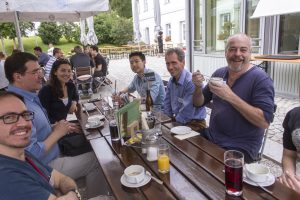
The school was structured into many distinct units, including refresher core courses, special research lectures, trainee data-blitz talks, methods-oriented workshops, debates and project defence. The gender-balanced German and international faculty comprised of highly acclaimed scientists from clinical and basic domains, representing not only multiple facets of pain but also other
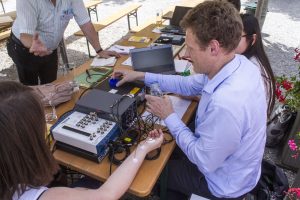 relevant disciplines, such as fear & anxiety, depression, synaptic plasticity, immunology and imaging.
relevant disciplines, such as fear & anxiety, depression, synaptic plasticity, immunology and imaging.
A very well-received feature of the summer school were the special method workshops on novel technologies, both on rodents and humans, organised in small groups by young scientists and junior faculty from SFB1158. Another highly popular feature were the student debates about controversial topics of high relevance for the pain community
Disguised as a ‘fun’ feature, it was evident that the debates encouraged trainees to think independently, discuss controversial issues, crystallize key arguments for and against scientifically disputed issues, and, importantly, consider and respect different points of view.
Postdoctoral trainees on the brink of starting their own research groups were particularly excited about a project defence workshop, in which trainees developed and defended a virtual project proposal from scratch. Postdoctoral trainees could recruit their own team from the participant trainee pool and plan a virtual laboratory. Experienced international faculty judged proposed projects on account of originality, coherence and feasibility and gave personal, detailed feedback to participating teams.
In candid feedback, all trainees lauded the school program strongly, but also expressed a wish to have a less intense program, more time for debate preparation and more personal time with the faculty, which we duly note and will act upon in the future.
We are very pleased that this scientifically intense and personally enjoyable experience was seen as a career landmark by SFB1158 trainees, which also brought them in close contact with their international counterparts. That they bonded very well, personally and scientifically, is evidenced by the Facebook page they independently founded for the International Pain Summer School.
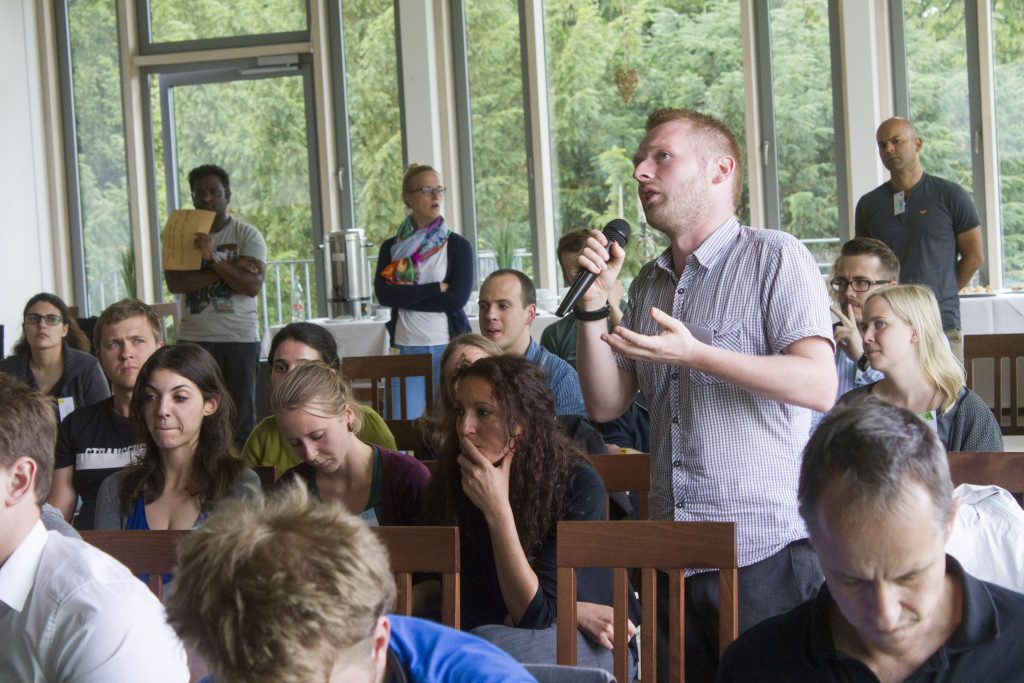
The organisers are very grateful towards the trainees and the faculty for making it a major success and all eyes are now turned to 2018 for the next event!
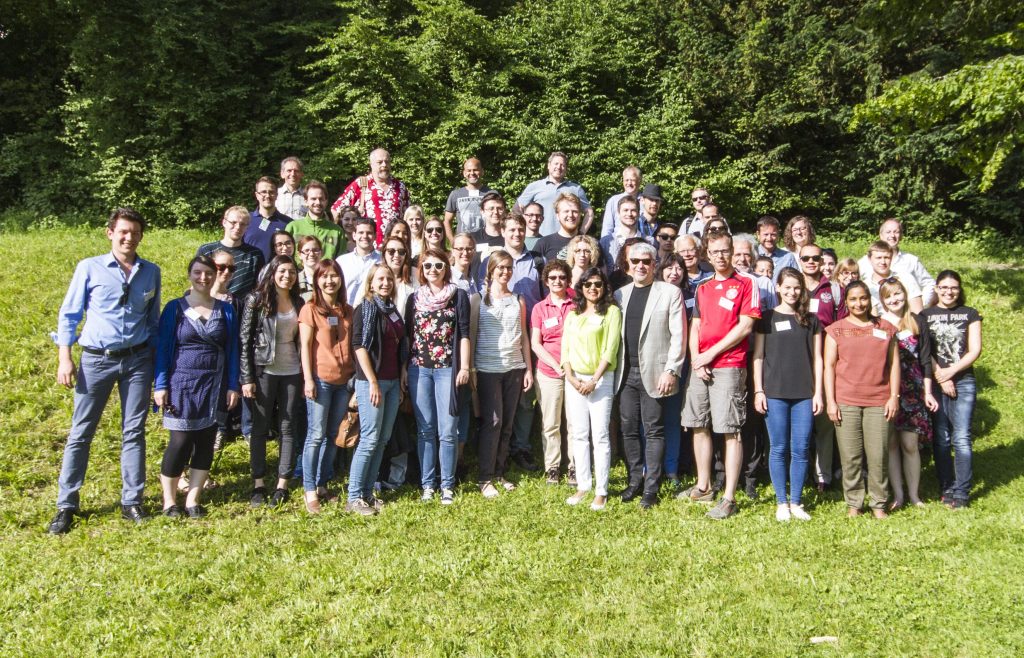
International Pain Summer School 2018
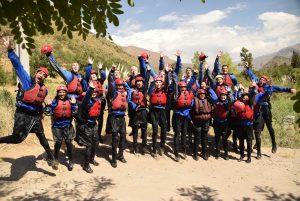 In January 2018, Scientists of Heidelberg Pain Consortium teamed up with again with faculty from the Canadian Pain Network and the United States to bring the International Painschool to South America. The school, entitled `The societal burden of chronic pain: neural circuits, mechanisms and new therapeutic avenues´ was organised at Heidelberg Centre Latin America, Santiago de Chile from January 8-12, 2018. One novel point in the concept of this joint Summer School between Heidelberg University and Latin America fostered educational goals on pain and also enabled doctoral students of economically disadvantaged countries in the region to attend a high quality Pain School.
In January 2018, Scientists of Heidelberg Pain Consortium teamed up with again with faculty from the Canadian Pain Network and the United States to bring the International Painschool to South America. The school, entitled `The societal burden of chronic pain: neural circuits, mechanisms and new therapeutic avenues´ was organised at Heidelberg Centre Latin America, Santiago de Chile from January 8-12, 2018. One novel point in the concept of this joint Summer School between Heidelberg University and Latin America fostered educational goals on pain and also enabled doctoral students of economically disadvantaged countries in the region to attend a high quality Pain School.
The school attracted 28 trainees from several countries of South America as well as trainees from USA, Canada and Germany. Both the schools had the similar curriculum. The trainees found working in small groups particularly productive. All trainees were quite contended with cross-cultural negotiations and building scientific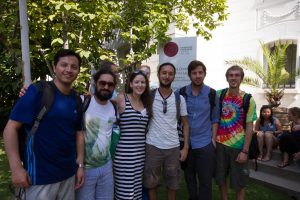 collaborations for their future scientific career.
collaborations for their future scientific career.
The school attracted 28 trainees from several countries of South America as well as trainees from USA, Canada and Germany. Both the schools had the similar curriculum. The trainees found working in small groups particularly productive. All trainees were quite contended with cross-cultural negotiations and building scientific collaborations for their future scientific career.
